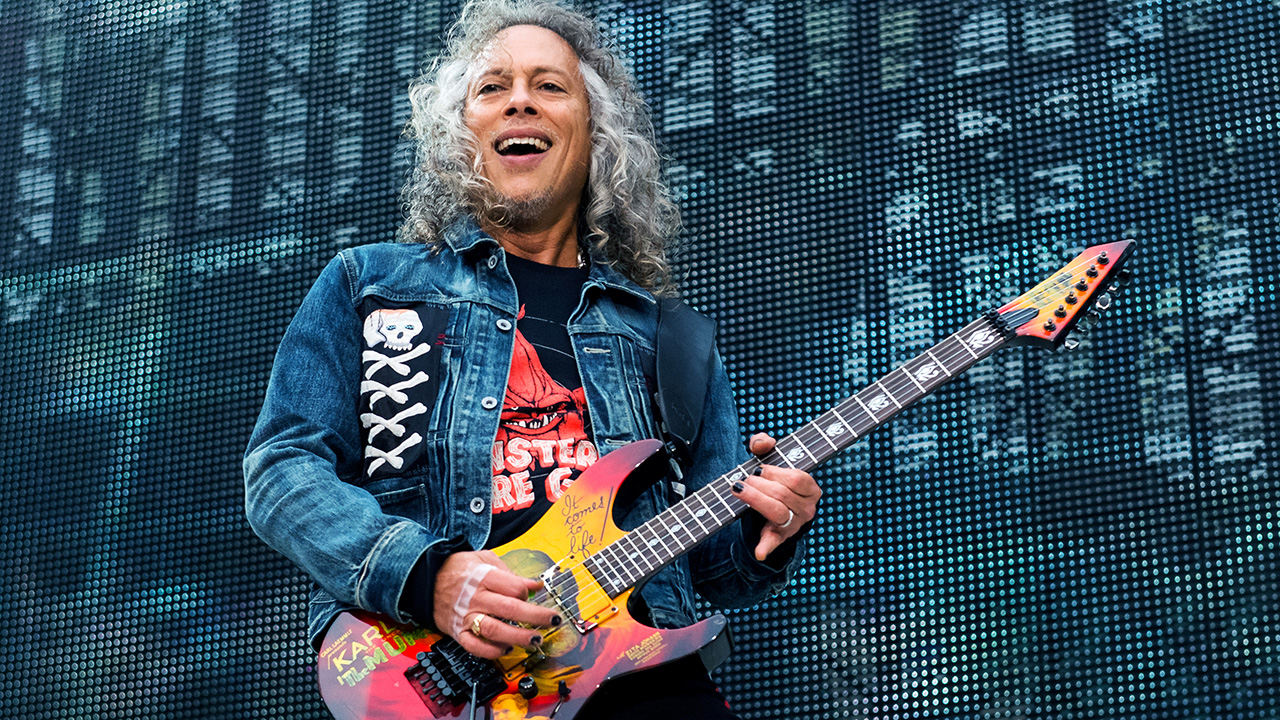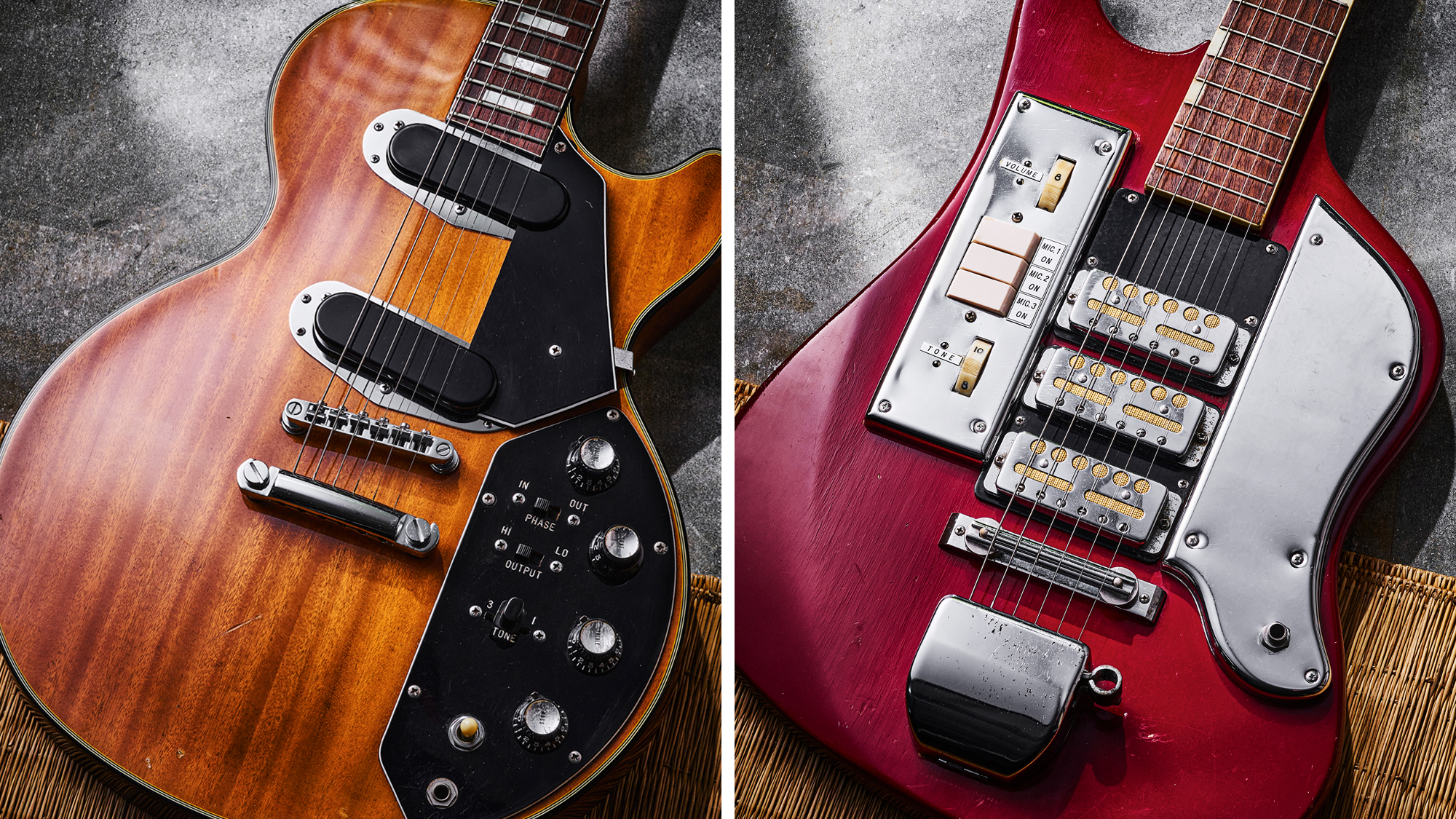Interview: Bassist John "JD" DeServio of Black Label Society on his roots, Zakk Wylde and Vinnie Moore
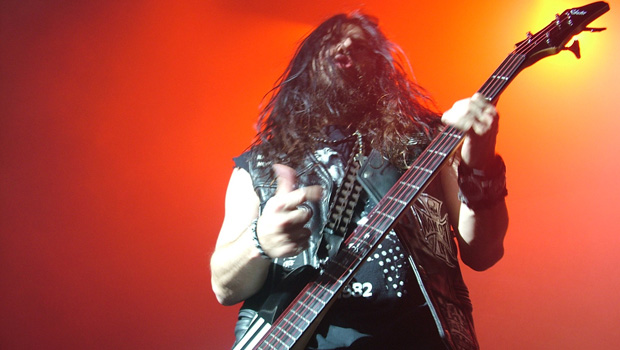
John "JD" DeServio has been involved off and on with Zakk Wylde and Black Label Society for several years. Their personal relationship goes back even further, to Wylde's pre-Ozzy Osbourne days.
JD has made a career for himself -- as an extremely versatile musician and producer -- beginning with a solid musical education in high school, followed by intense study at Berklee College of Music in Boston.
JD recently sat down with us backstage on a tour stop and walked us through his career.
When you started playing, you started with bass right out of the shoot. What drew you to the bass specifically?
I had my first bass when I was 11. My older brothers got me into their music, like The Doors, Led Zeppelin, etc. Jethro Tull was my favorite band in the world because he said “got it by the balls." “Locomotive Breath” was awesome. I’m in third grade and my buddy asks me who my favorite band was. I said Jethro Tull, and he showed me the picture of Kiss on the Empire State Building. I took one look at it and said, “They’re the best." I asked who the one guy was, and he said it was Gene Simmons and he played bass. That was it; that’s what I wanted to do. I loved horror movies and I loved music, and he was the perfect combination. I wanted to be Gene Simmons from then on and still to this day. It’s all Gene’s fault.
You taught yourself early on then took some music theory in high school and later attended Berklee. I wanted to get your thoughts on music education. It seems to be something that’s pretty much gone.
It really sucks. One of the first things they get rid of when they cut the budget is music or art. When I was in high school, we had music theory. I got to learn my modes, scales and chords. It helped me tremendously. And I got A’s in these classes. So when I was applying for Berklee, and I got a great reference from my music teacher, and my grades were good, they accepted me. Berklee was one of the best experiences of my life.
Get The Pick Newsletter
All the latest guitar news, interviews, lessons, reviews, deals and more, direct to your inbox!
How was the experience of Berklee from a bass player’s perspective?
It was tremendous. On every floor, there were wood sheds and glass sheds for drummers. I’d take my little amp in the glass shed and jam with drummers. I could jam with a sax player and I’d play with him or a violin player. The best thing was that everyone had something different to offer. I would jam with anyone. The classes were amazing. The teachers where amazing. Even the students were equally amazing. I opened my ears and mind to all of it.
When you studied, did you take composition and courses like that?
I took all the classes like counter point and ear training, which is the hardest class, but it’s the most beneficial to your playing. You hear notes that you have to sing, which is kind of scary for a lot of people, but that’s the only way you develop your ear. You have to sing (do ray me fa so la te do), which is a major scale. He’d hit a note on the piano, and I’d have to hit a minor third above it and stuff like that, which was great.
How did you get your start once you left school?
Jodi Bongiovi was my first gig. I left to go on tour with her and do the record. The record was half done when I got there. We had a video on MTV, “Somebody To Love,” and toured all through the US and Canada. That was 1989. We recorded at the PowerStation in New York, which was amazing. That was my first professional experience.
Then you did a tour with Vinnie Moore. What was that like?
Unbelievable. Vinnie isn’t as known to the level he should be. Vinnie is a beautiful soul and a great guitar player. It was 1991, and he put down his Meltdown record. I had auditioned for Alice Cooper and I didn’t get the gig. Eric Singer was the drummer, and he loved me. He said, “This dude makes me sweat." Alice took Vinnie Moore and his bass player, Greg Smith. Then Vinnie left to do his own solo record. He asked the guys in Alice if they knew any bass players. They had all said JD. So then I auditioned for Vinnie and we toured for over a year with an instrumental band with Brian Tichy on drums. It was a killer trio. We got to play the Garden with Rush on the Roll The Bones tour. Rush was so great to us.
When I think of a bass player, I think of Geddy Lee. Did you get to interact with him much?
Another great story! The first day of the tour, there is a note and a bottle of champagne and they invited us back to their dressing room. We go back and we’re all sitting around listening to him like he’s a guru. What nice people. One day at sound check, I’m playing “Teen Town” from Jaco Pastorius, and Geddy walks up on stage and offers for me to try his bass. He’s playing Wal basses with these really skinny strings. I got to jam with Neal Peart for about a minute on Geddy’s bass. That was awesome.
How did you enter Zakk’s world?
Zakk and I knew each another before he was in Ozzy. We played the same club scene in New Jersey. I heard about this guitarist who was burning. It was around then, my first year at Berklee. We met and we just starting jamming and became bros. That was around 1986. Anytime he did anything, he called me up. He’s been my biggest fan and supporter. It was huge when he got the Ozzy gig because we were such Randy fans.
In the 1990s, you did the band Drill. That showed you are a chameleon and could do industrial.
Definitely, that was more industrial and electronic. The singer was really creative. When I got in that band, I got hip to all the electronic and samples. I was a funk, fusion guy.
Can you talk about Cycle Of Pain?
That’s my side band from Black Label. When we were 14, we were all in a band together. My drummer at that time is the singer in Cycle of Pain now. The guitarist, Joe Taylor, was the guitar player back then. We were friends forever. When I went to Berklee, the band sort of fell apart but we stayed friends and jammed. The first Cycle Of Pain gig we did was in 1999 or 2000, and we opened for Black Label. I was fronting and I had a bass player. Zakk was so pissed I wasn’t playing bass. Plus we were doing like hip-hop, funk and metal. Later on in like 2003, we started writing together. In 2009 we got a record deal. I have a whole bunch of music I’ve recorded through the years. They said I could do whatever I wanted, and I said I wanted to do a record with my bros. People all say Gregg’s voice is very good. I’m hoping to get another deal and do another album.
When you go into the studio with Zakk, how do you approach it, being that you co-produce it?
Zakk has riff ideas and plays with a drummer. We get a good drum track and fill it in. I usually do my bass at the end, which is nice for me since I produce it. That way, I can hear it and fill it in and compliment it. It sucks for the drummers; they just hear this skeleton.
Live gear, what do you use?
I use my JD signature edition Schecter bass, GHS strings. My amp is a Harke, Zoom is my effects and a Samson wireless. I helped design the new Harke stuff. Live I use a Samson power amp so I have unlimited head room. I split one to the LH1000 head and the other side is my zoom. I have stereo with two sounds, and it is so punchy. My tone is killer. I play with Zakk so I have to cut through. You need more power with bass. I use 12-inch speakers live and in some situations with 10-inch speakers with Cycle of Pain.
Photos: John Katic
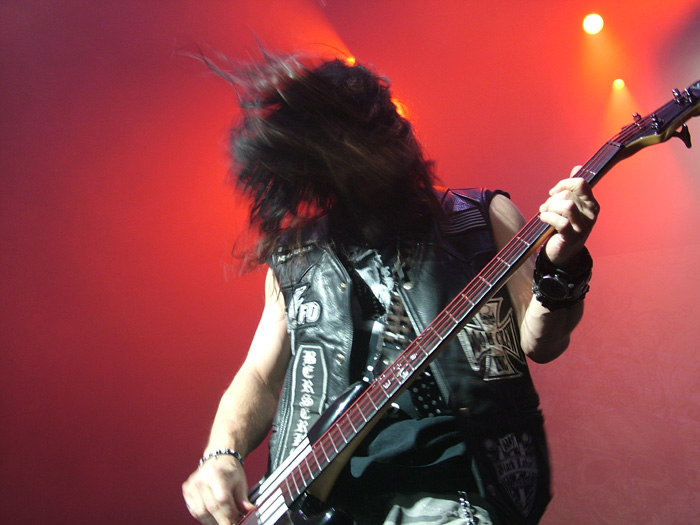
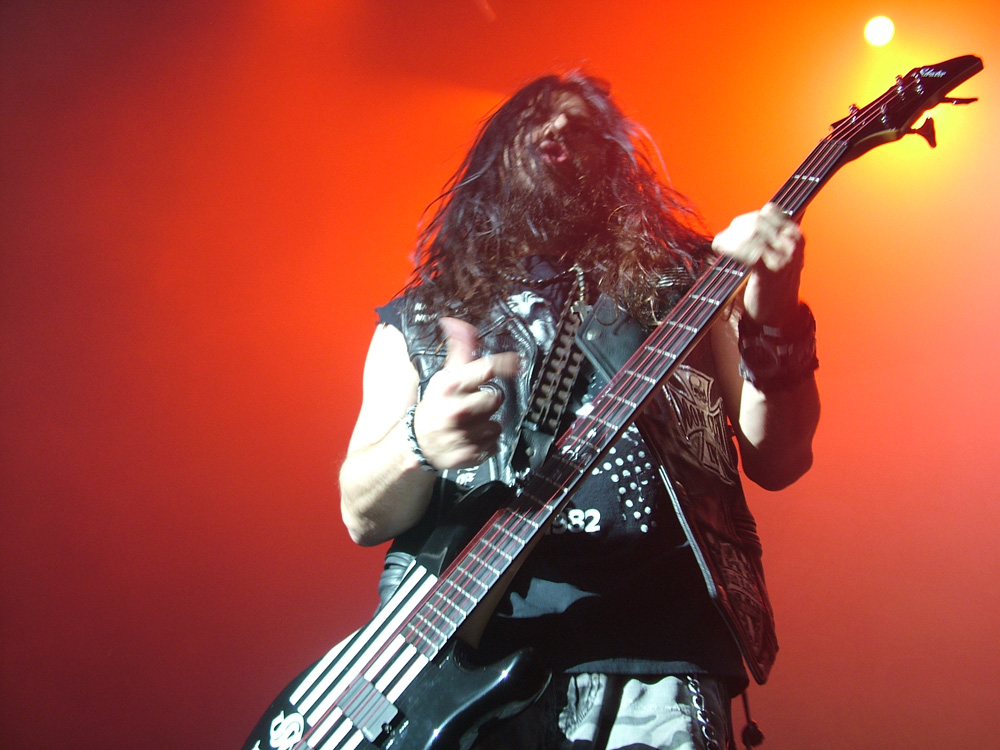
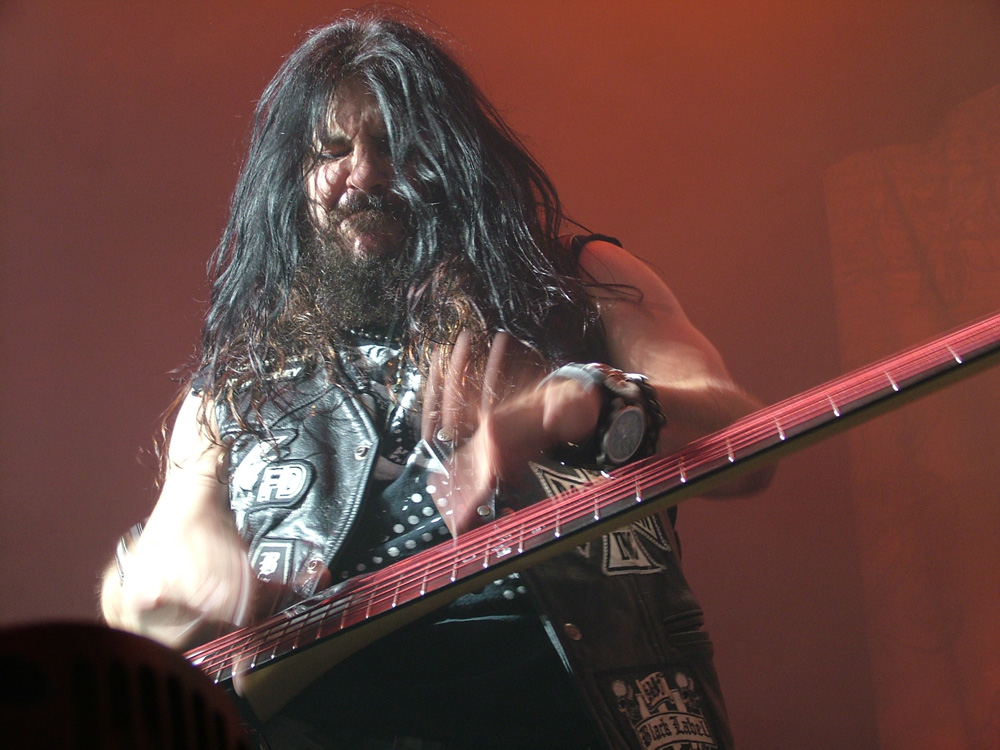
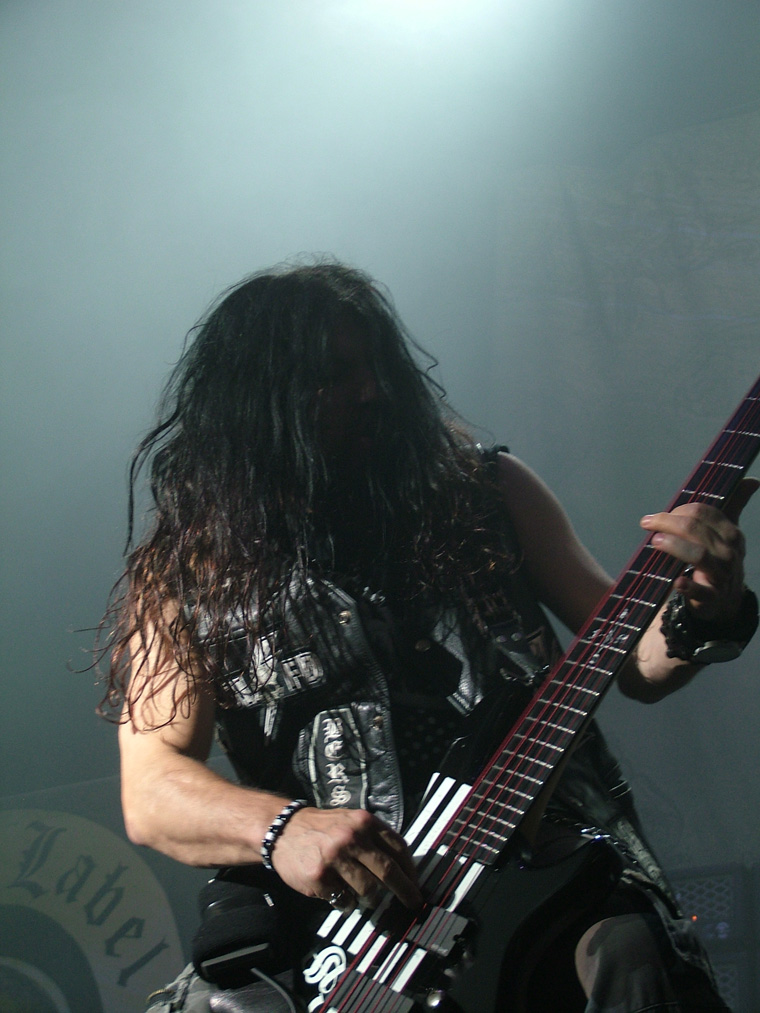
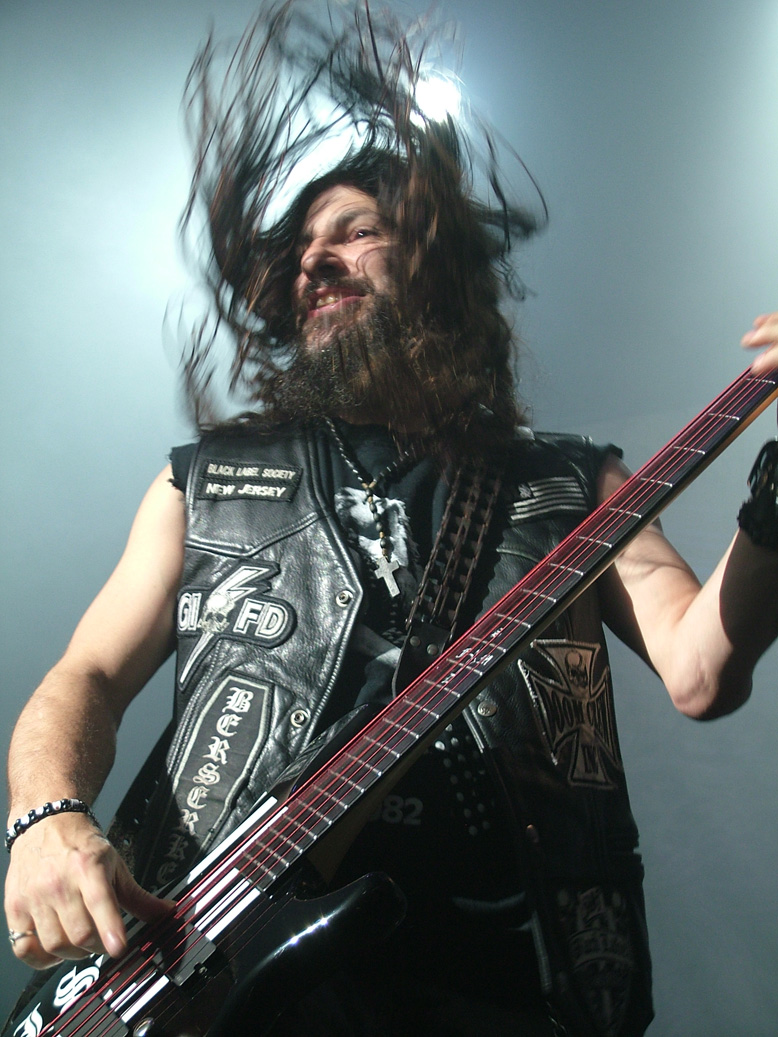
“I asked him to get me four bass strings because I only had a $29 guitar from Sears”: Bootsy Collins is one of the all-time bass greats, but he started out on guitar. Here’s the sole reason why he switched
“I got that bass for $50 off this coke dealer. I don’t know what Jaco did to it, but he totally messed up the insides!” How Cro-Mags’ Harley Flanagan went from buying a Jaco Pastorius bass on the street to fronting one of hardcore’s most influential bands








